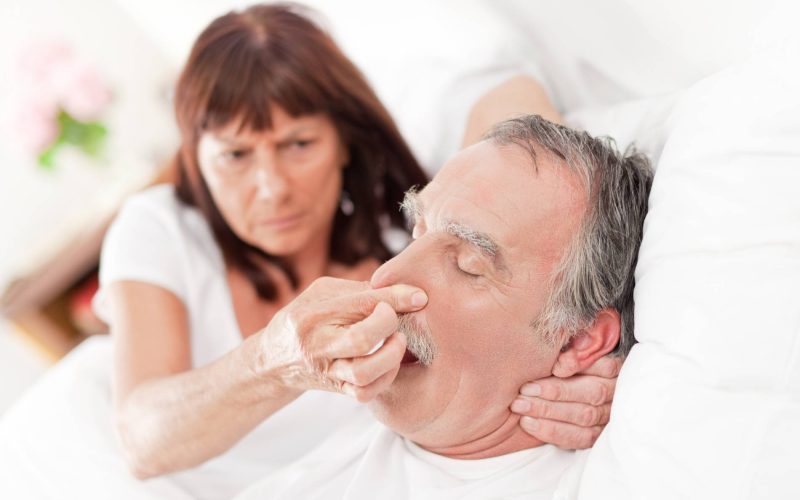Introduction
Are you tired of waking up to the sound of “sawing logs” or being kept awake by your partner’s incessant snoring? Snoring is a prevalent problem in our society today, not only disrupting sleep but also posing potential health risks. At Health Omni, we understand the importance of a good night’s sleep and the need to address this issue. In this comprehensive guide, we will explore the causes of snoring, effective methods to stop snoring, and when to consider seeking professional help. Say goodbye to sleepless nights and welcome the tranquility of silent slumber.
Why Do We Snore?
Snoring affects millions of Americans and is primarily caused by a blocked airway. During sleep, our muscles, including those in the mouth, relax. The tongue also relaxes and can roll back towards the throat, obstructing the airway. Soft tissues in the back of the throat, such as the palate, uvula, and tonsils, start to vibrate as we inhale, producing the notorious snoring sound. Snoring tends to be more prominent when lying on the back due to the gravitational pull. However, simply asking someone to roll onto their side can sometimes alleviate the snoring.
Effective Ways to Stop Snoring
While surgical interventions are available, there are numerous practical measures you can take at home to help combat snoring. Consider the following tips:
1. Avoid Alcoholic Beverages
Alcohol acts as a nervous system depressant, causing our muscles to relax even more deeply. By abstaining from alcoholic beverages, you can reduce muscle relaxation and alleviate snoring.
2. Be Cautious with Medications
Certain medications, such as tranquilizers, sleeping aids, and antihistamines, can exacerbate snoring by promoting muscle relaxation. It is advisable to consult with a healthcare professional about alternative options if you suspect your medications are contributing to your snoring.
3. Limit Dairy Consumption Before Bed
As comforting as that warm glass of milk may be, dairy products can lead to mucus buildup, which may obstruct the airway. To prevent snoring, it is recommended to avoid consuming dairy products right before bedtime.
4. Opt for an Early Dinner
Eating a large meal shortly before bed can worsen snoring. When you lie down after a heavy meal, the pressure from the food on your diaphragm can make it more challenging to breathe. To reduce snoring, try to finish your meals well in advance of bedtime.
5. Utilize Tennis Balls
A simple yet effective technique is to place tennis balls in the back of your shirt before sleep. This method prevents you from rolling onto your back, where snoring tends to be loudest.
6. Choose the Right Pillow
The type of pillow you sleep on can make a difference in reducing snoring. Opting for a firmer pillow provides better support for your neck and throat muscles, preventing excessive relaxation and potentially minimizing snoring.
7. Quit Smoking
Smoking causes inflammation in the throat and airways, increasing the likelihood of snoring. To combat snoring effectively, it is essential to minimize any inflammation in the throat. Therefore, refraining from smoking before bedtime is highly recommended.
8. Nasal Strips for Improved Breathing
Over-the-counter nasal strips can be a helpful aid in opening up your nostrils, allowing for improved airflow and reducing snoring. These adhesive strips adhere to the outside of your nose and help provide an additional clear pathway for oxygen.
Seeking Professional Help
If you have exhausted all the home remedies without success, it may be time to consult a healthcare professional. There are various medical interventions available to address snoring. A doctor can discuss potential surgical options or recommend the use of a specialized mask worn during sleep. This mask facilitates the unobstructed passage of oxygen through your airways, providing an effective solution to stop snoring. Remember, there are still options available, and seeking professional help can provide valuable insights into finding the best solution for your snoring troubles.
Conclusion
Sleep is a precious commodity that should not be compromised by the relentless disruption of snoring. By implementing the practical measures outlined in this guide, you can take significant steps toward stopping snoring and enjoying a peaceful night’s sleep. From avoiding alcohol and certain medications to making simple adjustments in your sleeping position, there are numerous strategies you can employ at home. However, if these methods fail to provide the desired results, do not hesitate to consult with a healthcare professional who can guide you towards appropriate interventions. Bid farewell to snoring and embrace the serenity of uninterrupted sleep.







